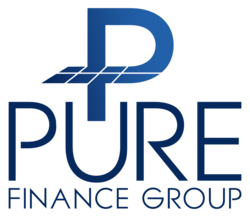November 18, 2024
The economic landscape is constantly shifting, and home improvement companies are feeling the effects. Rising inflation, fluctuating interest rates, supply chain disruptions, and changes in consumer behavior have created new challenges—and opportunities—for the industry. Understanding these factors and adapting to them is essential for home improvement businesses to thrive in this uncertain climate.

Here’s a closer look at the current economy and what it means for home improvement companies:
1. Inflation and Rising Costs
Inflation has driven up the cost of materials, labor, and operational expenses across the board. Everything from lumber to paint has seen price hikes, making it more expensive for contractors and home improvement companies to complete projects. For businesses, this means tighter profit margins and the need to pass on some of these costs to customers, which could potentially slow down demand.
To mitigate the impact of rising costs, home improvement companies should focus on:
- Negotiating with suppliers: Building stronger relationships with vendors may help secure better pricing or ensure priority access to materials.
- Streamlining operations: Improving efficiency in project management and reducing waste can help companies maintain profitability despite rising expenses. This includes fees on payment processing and financing that can slowly creep up over time.
- Offering flexible financing options: With consumers facing their own financial pressures, offering attractive financing solutions can help maintain demand, allowing customers to spread out payments and proceed with their home improvement projects.
2. Fluctuating Interest Rates
As central banks adjust interest rates to combat inflation, the cost of borrowing for both businesses and consumers is impacted. Higher interest rates can lead to fewer people taking out home improvement loans, reducing demand for large-scale renovations.
However, this also presents an opportunity for home improvement companies to:
- Emphasize smaller projects: When large renovations become too costly, many homeowners pivot to smaller, more affordable upgrades. Businesses can market cost-effective services that improve home value without requiring substantial investment.
- Promote energy-efficient improvements: Many homeowners are looking to reduce energy costs amid rising utility prices. Offering eco-friendly products like energy-efficient windows, insulation, and HVAC systems can appeal to consumers looking to save in the long run.
3. Supply Chain Disruptions
Global supply chain disruptions continue to affect the availability and cost of key materials for the home improvement industry. Delays in receiving materials or sudden price increases can lead to project backlogs and unsatisfied customers.
To navigate this challenge, home improvement companies should:
- Diversify suppliers: Relying on a single supplier increases risk. Expanding to multiple vendors can help ensure a consistent supply of materials, even if one source experiences delays.
- Keep customers informed: Transparency with clients about potential delays and material costs can help manage expectations and maintain trust throughout the project.
- Plan ahead: Securing materials in advance for upcoming projects can reduce the likelihood of delays due to supply chain issues.
4. Changes in Consumer Behavior
The pandemic and current economic uncertainty have influenced consumer priorities. Many homeowners are focusing on making their homes more comfortable, energy-efficient, and functional as they spend more time working remotely or seek to maximize the value of their property.
For home improvement companies, this shift in behavior means:
- Growing demand for home offices and functional spaces: As remote work continues, more homeowners are looking to remodel or create home offices. Offering solutions for functional, productive workspaces can capture this growing market.
- Increased focus on outdoor living: Homeowners are also investing in outdoor spaces, whether it’s for entertaining, gardening, or simply enjoying time at home. Promoting landscaping, deck construction, and other outdoor improvements can drive new business.
- Focus on property value: With real estate prices fluctuating, many homeowners are investing in projects that boost home value. Emphasizing services like kitchen or bathroom renovations, which offer a high return on investment, can appeal to those looking to improve their homes for the long term.
5. Homeowners Are Seeking Financing Solutions
As the economic pressures on consumers increase, more homeowners are looking for financing options to make their home improvement projects more affordable. Offering flexible payment solutions, like low-interest financing or payment plans, is becoming essential for home improvement companies to stay competitive.
Why Financing Matters:
- Increased affordability: With financing options, homeowners can take on larger projects without worrying about upfront costs.
- Faster project starts: Homeowners who don’t have to wait to save up for a project can begin sooner, keeping your pipeline full.
- Boost in customer satisfaction: Providing flexible payment options gives homeowners peace of mind and makes your services more accessible.
Pure Finance Group offers customer financing and payment processing solutions that reduce costs for your business and your customers helping to support sales and combat rising expenses. Make closing sales easier, faster, and cheaper all around from financing through to down payment collection.
